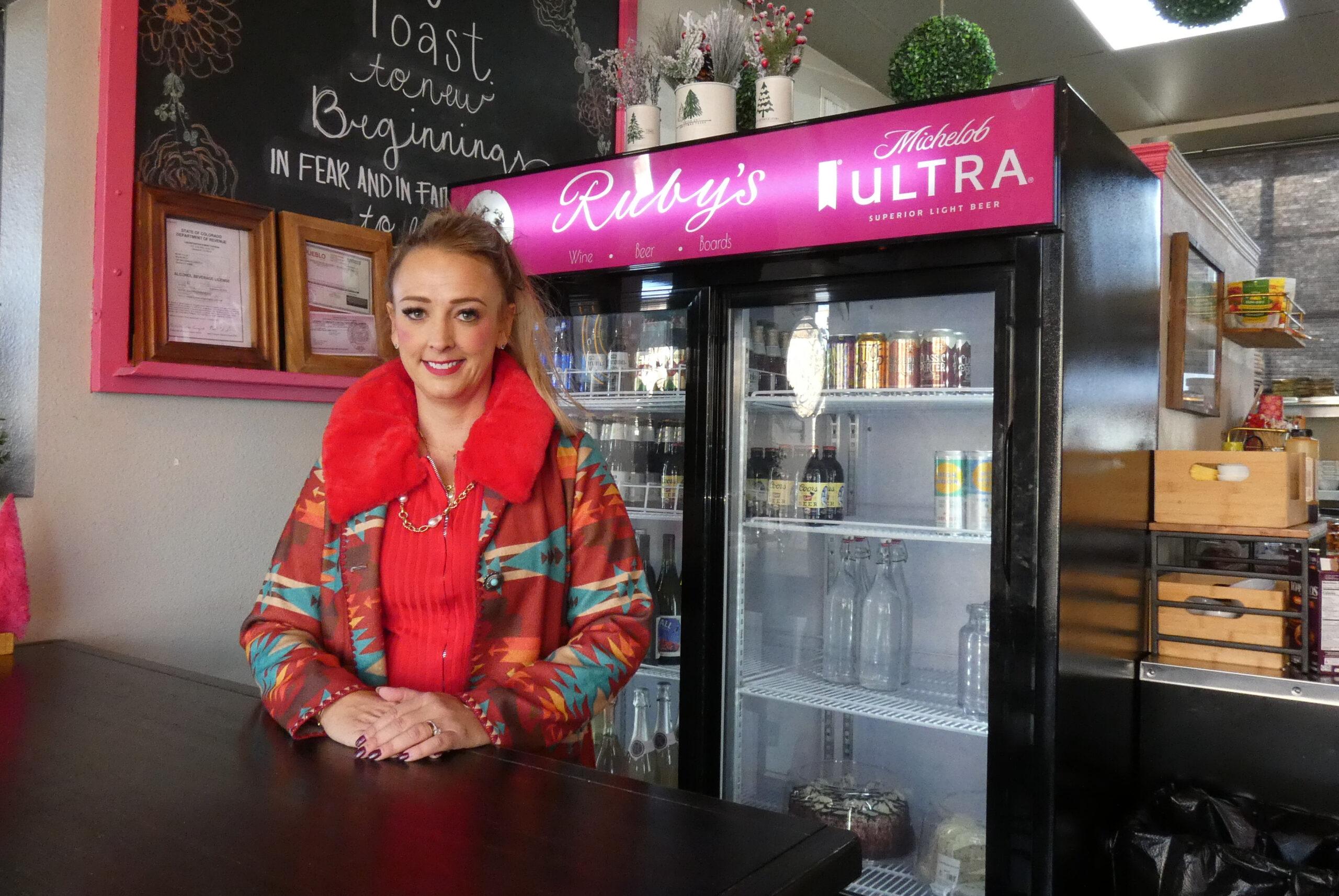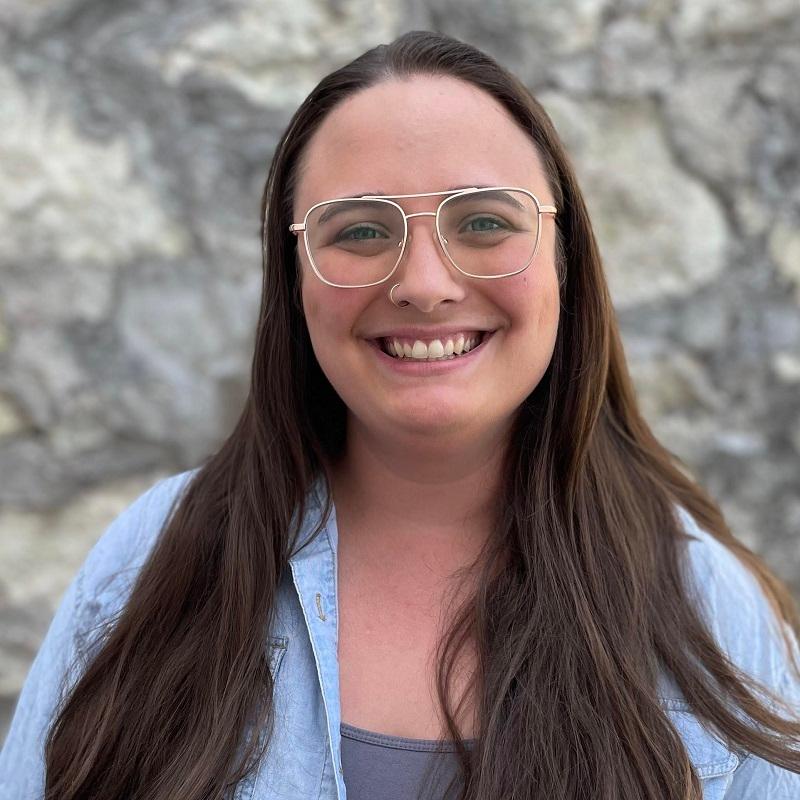
Click here for the Jan. 23 mayoral runoff election results.
Heather Graham owns three restaurants in Pueblo and has served as the city’s council president for the last two years. She says she ran for city council then because she didn’t like the way the local government handled the response to COVID-19.
Graham is running against current mayor Nick Gradisar. KRCC spoke to both candidates about their past accomplishments and priorities for Pueblo’s future. Here is what Graham had to say.
Listen to the full interview here:
Answers are edited for length and clarity.
On Public Safety
I think a lot of it comes from the legislation when we had some bills passed several years ago, felonies are now misdemeanors. Our jail does not take municipal holds, which makes it very hard for the police department. Our Part I crimes, which are like arson, rape, burglary, homicide, are actually down 12 percent overall from 2022.
But I find it that people in Pueblo are really concerned about the petty crime, car theft, their businesses being broken into, property damage, the way it looks outside, the homeless issue. And so I think that citizens are really concerned in those lower level crimes… going out after dark. And I think that you have to combat it with more officers on the ground.
The police department will be probably down 60 officers come the first of the year. We've had several retirees, several people leave to go work at other places up and down the Front Range. We've done some stuff, I've done some stuff on city council to combat that in the last year. We now pay for the police officers' uniforms thanks to my ordinance, which we never did. So that makes it attractable to be an officer here. We took two steps out of the pay scale, so the starting officers get paid a little bit more, and we gave our officers that we currently have a $10,000 retention bonus in July. So I think we would've seen a lot more officers leave if the city wouldn't have stepped in and showed support for public safety.
So I think we have to become creative. I think that somebody needs to be up at the legislature every time we're in session talking about crime bills showing what a need it is to kind of revert some of these things back to felonies so that you can put people away for stealing less than $2,000 in merchandise.
So I think that's important. I think the way that you hire more police officers is expedite the process. We have a civil service commission in Pueblo, so I'd like to put that on hold for 90 days if I was elected mayor, to where we can do a mass hiring process. Right now we're hiring for the May academy. So that's hard when you want to hire somebody and you're like, ‘well, we'll start the process in five months.’ That's hard. People will go work in other communities where they hire 24/7. We don't take lateral from other police departments in the same way that other communities do. So even if somebody wanted to move to Pueblo, it's a little bit more strenuous to be a police officer in Pueblo. So I think that there's a lot of things that we can do to try to combat crime. I just don't think any of it's being done right now.
On Housing
So the city does have a housing department. It's not necessarily our job, I guess, to build houses, but it is our job to try to make sure that there are housing developments that are affordable in the city. And one idea that I've had is to landlords that have apartment buildings or even properties is to give them a property tax rebate incentive if they keep it affordable. So the landlords aren't missing out on instead of charging a thousand dollars, they're charging $600 to $800. The city and the county could subsidize that additional fund with a tax break on property taxes. And that would be one way the city and the county could work together on trying to increase the stock that we have in affordable housing. We just don't have it.
We can also use some of the properties that we have that the city has and that we continue to pay, just abandoned properties essentially, or properties not in use. We can try to release these to developers who will put affordable housing in for a very low cost so that it keeps their costs low. I think that's what it comes down to is with inflation and cost of products, it's very hard to build affordable housing unless it's subsidized in some matter. And those are some ways that the city could subsidize and actually it would end up costing the city less money because you wouldn't be dumping all this money into keeping these properties going that are no longer in use but the city owns.
On Homelessness
It comes back to civic accountability. We don't want to just tell people that you're fine laying in the middle of the sidewalk. We don't want to say that Pueblo as a society is okay with that. It's not a good look. It's not okay for the businesses. It's not okay for the individual who's laying there. We want to say, build yourself up and let us help you do so. But I think a lot of times you have to have some rules in place to allow that to be done. When it's a free for all, you get what it looks like outside. It's a free for all right? There's shopping carts everywhere. There's trash everywhere.
So I think if we have camping bans and I think we have no sit or lie ordinances, I think in the end it helps everybody. It gives the individuals who find themselves in those positions that extra push to get help. It helps you not be enabling. And I think that we are seeing communities all over the U.S. put these kinds of ordinances and laws in place, and I think it's helping clean up the problems.
Most of the homeless people here, 90 percent of them, it's a drug addiction problem. It's not that they're choosing to be addicted, but when you're in 10 degree temperatures, taking fentanyl pills I'm sure helps you get through the night. And so I think the drug issue is the root problem. I think it's like what came first, drug addiction or mental health? And so when you have two really powerful issues like that, taking over the minds of the unhoused people, it's a challenge.
But I don't think we allow drugs to be sold on our streets, and I don't think that we allow people to not get help. I think we have to be the push to provide the resources because if you are mentally unwell or you are a drug addict, you can't see the clarity. And so I think as a city and the current mayor will say, it's not really the city's job to be meddling in these kinds of things, but it's the city's job to keep it clean and safe and hold people accountable. You have tons of people paying taxes and then you have tons of people who aren't paying taxes. And I think that everybody needs to be held to the same standard.
On how to attract more jobs to Pueblo
We try to do this now. We have PEDCO [Pueblo Economic Development Corporation]. It's a board I sit on. It's a board the mayor sits on. We try to bring new businesses to Pueblo with good paying jobs, but I think businesses are afraid to come to Pueblo. I think when you read those silly ‘Pueblo's top five crime places in the U.S.,’ I think that the mayor's job should be to control that narrative and to go to these businesses and say, ‘no, Pueblo is a great place and this is what we have to offer.’ I don't think that that's currently being done right now.
And I think that if you start promoting Pueblo with a positive narrative, I think that we can see a change. We have some big businesses who are looking to bring shop to Pueblo. Manufacturing, obviously it's kind of what Pueblo's model is. But we have about $50 million in our PEDCO tax right now, which is how we incentivize these businesses to come to Pueblo. And I think that we also might need to look at changing, tweaking that tax to be able to expand businesses that are already in Pueblo, because you have a lot of great smaller places who do pay a livable wage. And I think that instead of trying to attract people from out of the city, it would always be a great alternative to grow businesses that are already in the city.
On Pueblo’s future
30 years from now, I see Pueblo as being an attractive community that people want to take their families to go on the weekend. I have a dog, and so on the weekends when I'm not working or being busy, I look for different cities to drive to take my dog to, that's dog friendly, good restaurants, safe, has activities going on. And I want Pueblo to be on that map where people say, ‘Hey, let's go to Pueblo, Colorado. There's festivals, hotels, livelihood.’ I want Pueblo to be on the map as being an attractive city where people want to bring their businesses and people want to bring their families. And the families that are here, their kids want to stay here and grow old and build their life here.
I've worked through city government for the last two years, I find it a challenge to get things moving along in the city. And I think it's because we have the strong mayor form of government and there's not a whole lot of collaboration between the city council and the mayor's office as it stands right now. So hoping to bring that collaboration work together with the seven other people on council and really get Pueblo moving in the right direction.









